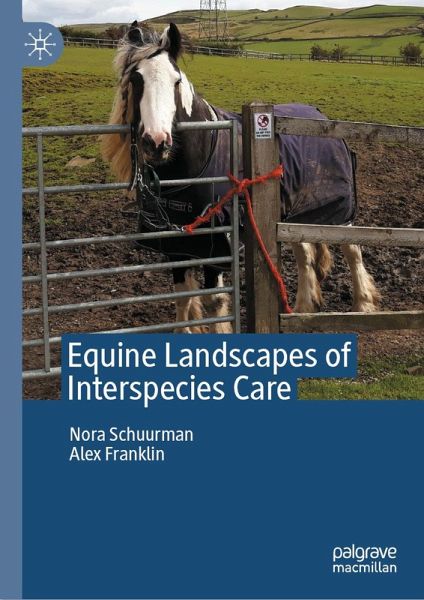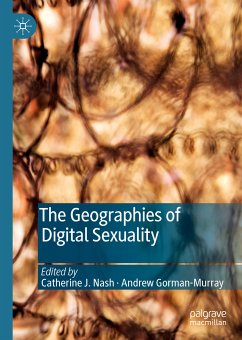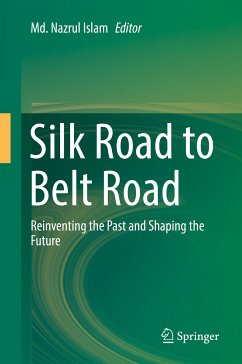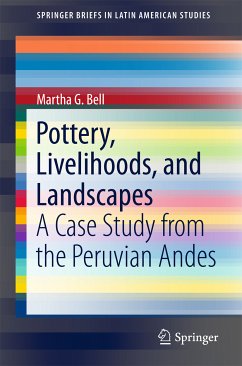
Equine Landscapes of Interspecies Care (eBook, PDF)
Versandkostenfrei!
Sofort per Download lieferbar
120,95 €
inkl. MwSt.
Weitere Ausgaben:

PAYBACK Punkte
60 °P sammeln!
This book focuses on the spaces and practices of caring for horses, explored in a series of case studies set across the equine lifespan. For horses, everyday practices of care as well as ever-changing understandings of what is good care directly shape their living conditions and lives with humans. In this book, questions of animal ethics and welfare are approached in a tangible way by exploring the relationships and practices of interspecies care across a range of different spaces, including horse yards, training grounds, farms, rescue centres and the street.The chapters illuminate the ways in...
This book focuses on the spaces and practices of caring for horses, explored in a series of case studies set across the equine lifespan. For horses, everyday practices of care as well as ever-changing understandings of what is good care directly shape their living conditions and lives with humans. In this book, questions of animal ethics and welfare are approached in a tangible way by exploring the relationships and practices of interspecies care across a range of different spaces, including horse yards, training grounds, farms, rescue centres and the street.
The chapters illuminate the ways in which interspecies care ties horses to human society and culture, addressing care practices in different stages of the equine life cycle. Through a unique set of case-studies addressing issues such as training, working, rescue, aging and death, the book offers a clear overview of how humans shape the lifespan of animals living under their care. It simultaneously foregrounds the agency of animals in this process and how such agency is interpreted and responded to by humans. With its theoretically solid analysis of rigorous empirical study, the book answers the need to understand human connection to the nonhuman world within the everyday practices and spaces of contemporary society and culture.
The chapters illuminate the ways in which interspecies care ties horses to human society and culture, addressing care practices in different stages of the equine life cycle. Through a unique set of case-studies addressing issues such as training, working, rescue, aging and death, the book offers a clear overview of how humans shape the lifespan of animals living under their care. It simultaneously foregrounds the agency of animals in this process and how such agency is interpreted and responded to by humans. With its theoretically solid analysis of rigorous empirical study, the book answers the need to understand human connection to the nonhuman world within the everyday practices and spaces of contemporary society and culture.
Dieser Download kann aus rechtlichen Gründen nur mit Rechnungsadresse in A, B, BG, CY, CZ, D, DK, EW, E, FIN, F, GR, HR, H, IRL, I, LT, L, LR, M, NL, PL, P, R, S, SLO, SK ausgeliefert werden.












